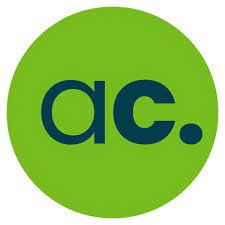Job Summary:
Primary functions are to administer skilled nursing care for clients of all ages in their place of residence, coordinate care with the interdisciplinary team, patient/family and referring agency; and assumes the responsibility for coordination of care.
Job Classification: Clinical
Lines of Authority: Reports to Director of Nursing/Director of Patient Services
Job Qualifications:
Education: Graduate of an accredited Diploma, Associate or Baccalaureate School of Nursing
Licensure: Current state licensed as a Registered Nurse, current State Driver’s License
Experience: Two years’ experience as a Registered Nurse in a clinical care setting preferred, hospice or home health preferred.
Skills: Nursing skills as defined as generally accepted standards of practice. Excellent interpersonal skills and ability to communicate effectively. Proof of Hepatitis consent/declination. Specialized skills preferred in palliation and end-of-life.
Transportation: Reliable transportation. Valid and current auto liability insurance.
Environmental and Working Conditions:
Works in patients home in various conditions; possible exposure to blood and body fluids and infectious diseases; ability to work flexible schedule; ability to travel locally; some exposure to unpleasant weather; PRN emergency call.
Physical and Mental Effort:
Prolonged sitting and walking required, with ability to lift up to 50 lbs. and move patients. Requires working under some stressful conditions to meet deadlines and patient needs, and to make quick decisions and resource acquisition; meet patient/family individualized psycho social needs. Requires hand-eye coordination and manual dexterity.
Essential Functions:
|
Initial and ongoing comprehensive assessments of the impact of the terminal disease on the patients physical, functional, psychosocial, and environmental needs and ADLs, i.e. risk for grief, cultural/spiritual,…
|
|
Implement the individualized POC and recommend revisions to the plan as necessary.
|
|
Consulting with and educating the patient/family regarding disease process, dietary needs, self-care techniques, end-of-life care. Providing training to other staff as needed.
|
|
Initiating appropriate preventive and rehabilitative nursing procedures.
|
|
Preparing clinical and progress notes that demonstrate progress toward established goals.
|
|
Coordinating all patient/family services and prioritization of needs with the members of IDT.
|
|
Use of case management approach and referring to other services as needed.
|
|
Informing physician and other personnel of changes in the patient’s needs and outcomes of intervention, while evaluating patient/family response to care.
|
|
Determining scope and frequency of services needed based on acuity and patient/family needs.
|
|
Assessing ability of the caregiver to meet the patient’s immediate needs upon admission and throughout care.
|
|
Evaluating own needs for support and using identified systems to meet the need.
|
|
Communicating information using correct process and technology available to the organization.
|
|
Applying specific criteria for admission and re-certification to hospice care to establish appropriate levels of care and the patient’s eligibility.
|


